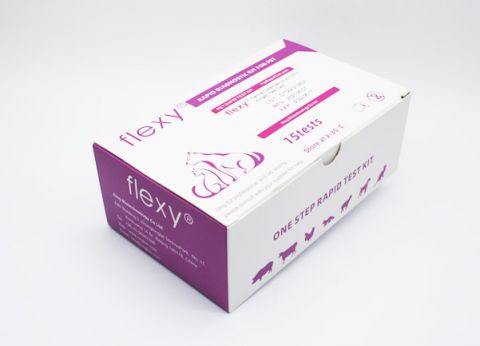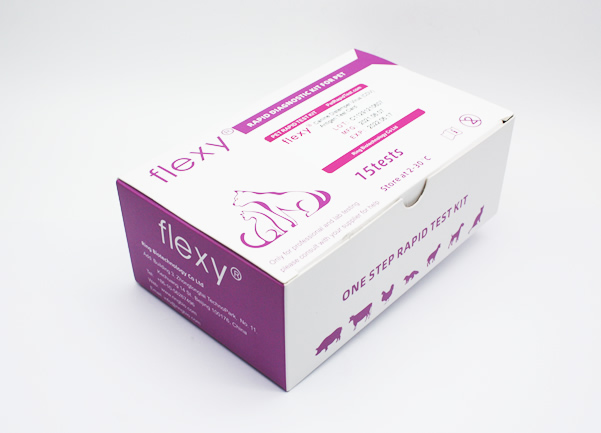
Canine Parvovirus real time PCR Test Kit is a real-time fluorescence PCR test to detect CPV antigen in dog feces
Basic information
CPV is a highly contagious viral disease of dogs that commonly causes acute gastrointestinal illness in puppies. The disease most often strikes in pups between six and 20 weeks old, but older animals are sometimes also affected. A rare variant of the disease that may be seen in very young (neonatal) puppies is myocarditis (an inflammation of the heart muscle).
Key facts of the Canine Parvovirus real time PCR Test Kit
- Ready to use kits for vet clinic
- No extraction required
- Result in 30min.
Canine Parvovirus real time PCR Test Kit Components
| Item # | Item | Qty |
|---|---|---|
| 1 | PCR reaction solution | 120ul |
| 2 | Negative Control | 50ul |
| 3 | Positive Control | 50ul |
| 4 | Exogenous Gene Control | 50ul |
| 5 | Sample buffer | 1ml |
| 6 | Kit user manual | 1set |
Why and how might my dog become infected?
Canine parvovirus can be found in almost any environment, but not every dog who comes into contact with the virus becomes infected. Several factors come into play in infection, including the immune status of the dog and the number of viruses the dog is exposed to. If the combination of factors is just right and a dog does become infected, a specific sequence of events is begun as the virus attacks the body.
Symptoms and complications
Symptoms often associated with CPV include lethargy, depression, and loss or lack of appetite, followed by a sudden onset of high fever, vomiting, and diarrhea. If your dog is experiencing bouts of bloody diarrhea and/or vomiting, CPV is only one of several potential culprits. Your veterinarian can run several tests to help determine whether your dog is infected with CPV.
What are the treatment options for dogs with CPV?
Treatment options for dogs suffering from CPV involve supportive care and management of symptoms. Treatment options will vary, depending on how sick the dog is, but certain aspects are considered vital for all patients.
A hospital stay is often necessary so that the dog can receive intravenous fluids and nutrients to replace the vast quantities lost via vomiting and diarrhea. An intravenous drip is preferred because the digestive tract of stricken dogs is usually in distress and can’t tolerate or absorb what the dog needs. Blood transfusions may also be helpful to boost low blood cell counts that may result from CPV infecting the bone marrow.
Antibiotics may be appropriate therapy for a dog suffering from CPV, administered either intravenously or as injections, to help fight the infection if intestinal bacteria have entered the bloodstream. In addition, medications to control nausea and diarrhea are sometimes useful. Many dogs will respond to medical therapy if it is initiated in a timely fashion, and those dogs that recover from CPV infection retain lifelong protective immunity against the strain that infected them.
Extended reading
- Canine parvovirus (CPV), Baker Institute for Animal Health




